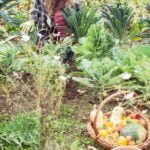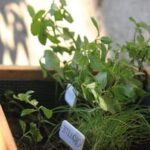What is the best soil mix for vegetable gardens? The answer to this question is crucial for anyone looking to cultivate a successful vegetable garden. The soil mix plays a fundamental role in the health and productivity of vegetable plants, making it essential to understand its importance and how to choose the right one.
In this article, we will delve into the significance of soil mix for vegetable gardens, exploring its composition, drainage, nutrient content, pH balance, and more. By understanding these factors, you’ll be better equipped to create the optimal environment for your vegetable plants to thrive.
The composition of the soil mix is a key determinant of plant growth and overall garden success. Different components of soil play specific roles in providing a healthy environment for vegetable plants to grow and develop. Understanding these components and their functions will enable you to make informed decisions when selecting a soil mix for your vegetable garden.
In addition to the composition of the soil mix, its drainage capabilities are crucial for supporting healthy plant growth. Proper drainage prevents waterlogging and ensures that plants have access to oxygen, which is vital for root development. With suitable drainage in place, you can prevent common issues such as root rot and other water-related plant diseases. Join us as we explore the various options for soil mix and their benefits for nurturing thriving vegetable gardens.
Understanding Soil Composition
Soil composition is an essential factor in determining the success of vegetable gardens. A proper understanding of the different components of soil and their roles in plant growth is crucial for creating the best soil mix. Soil is composed of mineral particles, organic matter, water, and air. Each component plays a vital role in supporting plant growth and overall soil health.
Mineral particles, such as sand, silt, and clay, make up the physical structure of soil. They provide anchorage for plant roots and create pore spaces for air and water movement. The size and arrangement of these particles impact soil texture, which in turn affects properties like drainage and water-holding capacity. Organic matter contributes to soil fertility by providing essential nutrients to plants as it decomposes. It also improves soil structure, water retention, and beneficial microbial activity.
In addition to mineral particles and organic matter, water and air are crucial components in soil composition. Water provides plants with a medium for nutrient uptake while also aiding in the breakdown of organic matter by microorganisms. Air is necessary for root respiration and microbial activity within the soil. Understanding the roles of each component allows gardeners to create an ideal soil mix that promotes healthy plant growth.
| Soil Component | Role |
|---|---|
| Mineral Particles (sand, silt, clay) | Anchorage for plant roots; creates pore spaces for air and water movement |
| Organic Matter | Provides essential nutrients to plants; improves soil structure; enhances water retention; supports beneficial microbial activity |
| Water | Aids in nutrient uptake by plants; supports decomposition processes by microorganisms |
| Air | Necessary for root respiration; supports microbial activity within the soil |
Choosing the Right Soil Mix
When it comes to choosing the right soil mix for vegetable gardens, it’s important to consider the specific needs of the plants you plan to grow. There are various options available, each with its own set of benefits and drawbacks.
One popular choice is a combination of topsoil, compost, and other organic matter, which provides a good balance of nutrients and promotes healthy root development. Another option is using a pre-made potting mix, which can be convenient but may require additional amendments to meet the needs of specific vegetables.
In addition to traditional soil mixes, some gardeners opt for soilless mixes that are composed of materials such as peat moss, perlite, and vermiculite. These mixes tend to be lightweight and offer excellent drainage, making them ideal for container gardening.
However, they may require more frequent watering and fertilizing due to their lack of natural nutrients. Ultimately, the best soil mix will depend on factors such as your local climate, the types of vegetables you’re growing, and your preferred gardening methods.
It’s also important to consider the long-term benefits of your chosen soil mix. A healthy soil mix should promote strong root development, provide essential nutrients for plant growth, and maintain proper pH levels for optimal nutrient uptake. By understanding the different options available and their specific benefits for vegetable gardens, you can make an informed decision that will set the stage for successful and bountiful harvests.
| Soil Mix Option | Benefits |
|---|---|
| Topsoil + compost | Good balance of nutrients; promotes healthy root development |
| Pre-made potting mix | Convenient; may require additional amendments |
| Soilless mix | Lightweight; excellent drainage |
Importance of Drainage
When it comes to vegetable gardening, ensuring good drainage is essential for healthy plants. Proper drainage allows excess water to escape, preventing the roots from becoming waterlogged and potentially rotting. The soil mix plays a crucial role in maintaining optimal drainage for vegetable gardens. Here are some key factors to consider when it comes to the importance of drainage in vegetable gardening:
- Soil Composition: Understanding the composition of the soil mix is important for ensuring good drainage. Components such as perlite, vermiculite, or coarse sand can help improve drainage by creating pore spaces for water to flow through.
- Avoiding Compaction: Compacted soil can hinder drainage, leading to standing water and potential root damage. Adding organic matter such as compost can help improve soil structure and prevent compaction.
- Raised Beds: If natural drainage is poor in your garden area, consider using raised beds with well-draining soil mix to provide better growing conditions for your vegetables.
In addition to these considerations, proper drainage also helps in preventing diseases caused by waterlogged conditions and ensures that oxygen reaches the roots of the plants. By choosing the right soil mix and implementing strategies for good drainage, you can set your vegetable garden up for success and promote healthy plant growth.
Nutrient Content
Importance of Nutrient-Rich Soil
When it comes to vegetable gardening, having a nutrient-rich soil is essential for the healthy growth and development of plants. Nutrients such as nitrogen, phosphorus, and potassium are vital for the overall health, productivity, and quality of vegetables. The right soil mix should provide these essential nutrients to support strong root growth, vibrant foliage, and bountiful harvests.
Ensuring Soil Mix Provides Necessary Nutrients
To ensure that the soil mix provides the necessary nutrients for vegetable gardens, it’s important to choose a high-quality potting mix or garden soil that is specifically formulated for vegetables. These specialized mixes are designed to have the right balance of nutrients required for optimal plant growth. Additionally, incorporating organic matter such as compost or well-rotted manure into the soil can further enhance its nutrient content.
Soil Testing and Fertilization
Before planting your vegetable garden, consider conducting a soil test to determine its nutrient levels. This will help you identify any deficiencies and allow you to amend the soil accordingly. Based on the results of the soil test, you can apply organic or synthetic fertilizers to adjust the nutrient levels as needed. Regularly fertilizing your vegetable garden throughout the growing season will help ensure that your plants have access to the nutrients they require for healthy growth and abundant yields.
By prioritizing nutrient-rich soil in your vegetable garden, you can set your plants up for success from the very beginning. Taking steps to provide a well-balanced mix rich in essential nutrients will lead to healthier plants and a more productive harvest in your vegetable garden.
pH Balance
When it comes to growing a successful vegetable garden, one of the key factors to consider is the pH balance of the soil. The pH level of the soil refers to its acidity or alkalinity, and different types of vegetables thrive in different pH levels. Understanding the significance of pH balance and how to maintain it in the soil mix is crucial for ensuring healthy and fruitful vegetable plants.
Importance of pH Balance
The pH balance of the soil plays a critical role in the growth and development of vegetables. Different types of vegetables have specific pH level requirements for optimal growth.
For example, some vegetables such as tomatoes and peppers prefer slightly acidic soil with a pH level between 6.0 and 6.8, while others like spinach and potatoes thrive in more neutral soil with a pH level around 6.5 to 7.0. Failing to provide the right pH balance can lead to nutrient deficiencies, poor plant growth, and ultimately lower yields.
Maintaining pH Balance in Soil Mix
To maintain the appropriate pH balance in your soil mix, it is essential to test the pH level regularly using a simple soil testing kit. If the pH level is not within the optimal range for the vegetables you are growing, you can adjust it by adding amendments such as lime to raise the pH for acidic soil or sulfur to lower it for alkaline soil.
It’s important to follow recommended guidelines for applying these amendments as adding too much can harm your plants.
Understanding the significance of pH balance in soil for different types of vegetables and being able to maintain it in your soil mix will contribute greatly to the success of your vegetable garden. By ensuring that your plants are getting the right acidity or alkalinity they need from their environment, you can promote healthy growth, strong root development, and bountiful harvests from your vegetable garden.
Organic vs Non-Organic Soil Mix
When it comes to choosing the right soil mix for vegetable gardens, one key decision to make is whether to use organic or non-organic soil. Both options have their own set of benefits and drawbacks that can greatly impact the overall health and success of your vegetable plants.
Organic soil mix is made from natural materials such as compost, peat moss, and other organic matter. One of the main benefits of using organic soil mix is that it contains a rich supply of nutrients that are essential for healthy plant growth.
Additionally, it promotes beneficial microbial activity in the soil, which can improve overall soil structure and fertility. However, one drawback of organic soil mix is that it may be more expensive than non-organic options, and there is a possibility of introducing weed seeds or pathogens if the compost used is not properly processed.
On the other hand, non-organic soil mix is typically made from synthetic materials and does not contain organic matter like compost. The benefit of using non-organic soil mix is that it tends to be less expensive than organic options and has a lower risk of containing weed seeds or pathogens. However, non-organic soil may not provide as many essential nutrients for plant growth as organic soil mix and may lack beneficial microbial activity.
Preparation and Maintenance
When it comes to preparing the soil mix for a vegetable garden, there are several factors to consider in order to ensure optimal growth and productivity. Here are some important tips for preparing and maintaining the soil mix:
- Start with the basics: Before preparing the soil mix, it’s essential to have a clear understanding of the composition of your existing soil. This can be done through a simple soil test which will provide valuable information about the pH balance, nutrient levels, and overall structure of the soil.
- Choosing the right components: When preparing the soil mix for a vegetable garden, it’s important to use a combination of organic matter such as compost or well-rotted manure, as well as inorganic matter like perlite or vermiculite. This combination helps to create a balanced growing environment with adequate drainage and moisture retention.
- Maintenance is key: Once the soil mix has been prepared and the vegetables have been planted, ongoing maintenance is crucial for ensuring optimal growth. This includes regular watering, monitoring for any signs of nutrient deficiencies or pH imbalances, and incorporating organic mulch to help retain moisture and suppress weeds.
By following these tips for preparing and maintaining the soil mix, vegetable gardeners can create an ideal environment for their plants to thrive, ultimately leading to a bountiful harvest of fresh produce. With careful attention to detail and regular maintenance, it is possible to achieve successful vegetable gardening year after year.
Conclusion
In conclusion, the soil mix used in vegetable gardens plays a crucial role in the success of the plants. By understanding soil composition and choosing the right mix, gardeners can provide their vegetables with the necessary nutrients and optimal growing conditions.
Good drainage is essential for plant health, and gardeners should ensure that their soil mix allows for proper water flow. Additionally, maintaining the pH balance and selecting organic or non-organic soil mix based on individual needs are important considerations for successful vegetable gardening.
It is evident that nutrient-rich soil is vital for vegetable gardens to thrive. By paying attention to the composition of the soil mix and ensuring it provides essential nutrients, gardeners can support healthy plant growth and bountiful yields. Furthermore, regular preparation and maintenance of the soil mix are necessary to create an environment conducive to successful vegetable gardening. With these considerations in mind, gardeners can set themselves up for a rewarding and fruitful gardening experience.
In summary, using the best soil mix for vegetable gardens is paramount for successful gardening. By addressing aspects such as soil composition, drainage, nutrient content, pH balance, and organic vs. non-organic options, gardeners can create an optimal environment for their plants to flourish. With proper preparation and ongoing care, vegetable gardens can thrive and provide a rich bounty of fresh produce.
Frequently Asked Questions
What Is the Perfect Vegetable Garden Soil Mix?
The perfect vegetable garden soil mix should have a balanced combination of sand, silt, and clay to ensure good drainage and moisture retention. Adding organic matter like compost or well-rotted manure can also improve the soil’s structure, fertility, and ability to hold nutrients for plant growth.
What Is the Best Soil Composition for All Vegetables?
The best soil composition for all vegetables is generally a loamy soil that allows for good drainage while retaining moisture and nutrients. A loamy soil typically consists of a balanced mix of sand, silt, and clay, which provides a good environment for root development and water retention without becoming waterlogged.
What Kind of Soil Is Best for Raised Vegetable Garden?
The best type of soil for raised vegetable gardens is a well-draining mixture that provides good air circulation to the roots of the plants. A blend of topsoil, compost, peat moss, and vermiculite or perlite is often recommended for raised beds to provide nutrients, retain moisture, and promote healthy root growth in a contained space.

If you’re looking to get into vegetable gardening, or are just looking for some tips on how to make your current garden better, then you’ve come to the right place! My name is Ethel and I have been gardening for years. In this blog, I’m going to share with you some of my best tips on how to create a successful vegetable garden.





